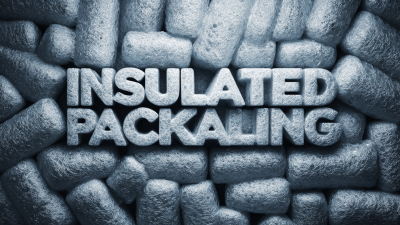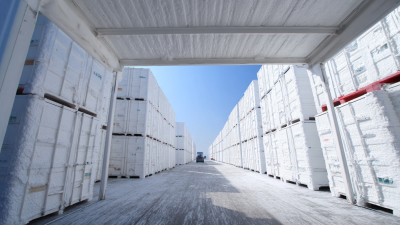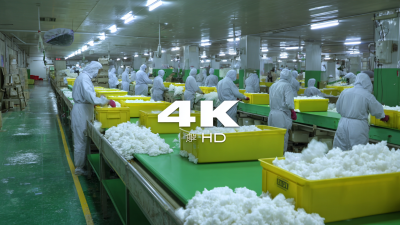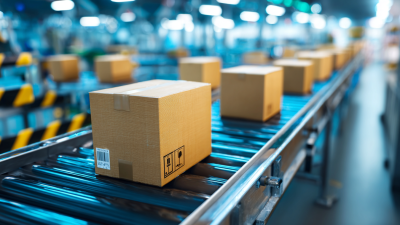The Ultimate Guide to Choosing the Best Insulated Shipping Boxes for Your Business
In today's competitive marketplace, selecting the right Insulated Shipping Boxes is crucial for businesses that handle temperature-sensitive products. According to a recent report by MarketsandMarkets, the insulated packaging market is projected to reach USD 32.4 billion by 2026, growing at a CAGR of 5.6% from 2021. This surge highlights the increasing demand for reliable temperature control in shipping, especially in sectors such as food and pharmaceuticals. Choosing the right insulated shipping solution can significantly influence product quality, customer satisfaction, and ultimately, a company's bottom line.

As companies strive to meet consumer expectations and adhere to stringent regulatory standards, understanding the various options available in insulated shipping boxes becomes essential for success. In this ultimate guide, we will explore the key factors to consider when selecting insulated shipping boxes that best suit your business needs.
Understanding the Importance of Insulated Shipping Boxes for Temperature-Sensitive Goods
Insulated shipping boxes play a critical role in the transportation of temperature-sensitive goods, ensuring the integrity of products such as pharmaceuticals, perishable food items, and biological samples. According to a report by the Temperature Control and Logistics Market, the demand for insulated packaging solutions is expected to grow at a rate of 5.5% annually, reaching a value of $30 billion by 2026. This surge is driven by the increasing importance of maintaining product quality and compliance with stringent regulations in sectors dealing with sensitive materials.

The effectiveness of insulated shipping boxes is measured not only by their thermal insulation properties but also by their ability to sustain specific temperature ranges throughout the shipping process. Research indicates that nearly 50% of temperature-sensitive products are compromised during transport, leading to significant financial losses and potential health risks. By selecting the right insulated shipping solutions tailored to their specific needs, businesses can mitigate these risks, enhance customer satisfaction, and improve their overall operational efficiency. Consequently, investing in high-quality insulated boxes is not merely a logistical decision but a pivotal element of a successful supply chain strategy.
Key Features to Look for in High-Quality Insulated Shipping Boxes
When selecting insulated shipping boxes for your business, understanding the key features that define high-quality options is paramount. First and foremost, consider thermal performance. According to a recent industry report, insulated boxes can significantly reduce temperature fluctuations, preserving product integrity during transit. Look for materials with high R-value ratings, as these indicate better insulation efficiency.
Additionally, durability is critical. Ensure that the boxes are constructed from robust materials that can withstand rough handling and extreme temperatures. A study indicated that businesses using reinforced insulated boxes experienced a 30% lower rate of product damage during shipping. This highlights the importance of investing in sturdy packaging solutions.
**Tips:**
- Check for certifications that validate the insulation performance and material quality.
- Opt for custom sizes tailored to your products to minimize movement and ensure maximum insulation efficiency.
- Evaluate the sustainability of the materials used, as eco-friendly options can enhance your brand’s reputation while meeting regulatory standards.
The Performance of Insulated Shipping Boxes
Evaluating Different Types of Insulated Shipping Materials
When it comes to shipping temperature-sensitive products, the choice of insulated shipping materials is critical for maintaining product integrity. Various types of insulated shipping materials are available, each designed to offer different levels of thermal protection and operational advantages. For instance, expanded polystyrene (EPS) foam is a popular choice due to its lightweight structure and excellent insulation properties. These boxes provide reliable thermal protection while also being cost-effective for businesses shipping perishable goods.
Alternatively, polyurethane foam offers superior insulation and durability, making it ideal for longer transit times or extreme temperature conditions. While it may come at a higher price point, its superior performance often justifies the investment, especially for high-value items. Additionally, businesses should consider alternative materials, such as eco-friendly insulated boxes made from recycled paper or biodegradable products, which can enhance sustainability efforts without sacrificing performance. Each type has its unique advantages, and the right choice will depend on specific shipping needs, budget, and environmental considerations.
Customizing Insulated Shipping Boxes for Your Business Needs
When customizing insulated shipping boxes for your business, it's essential to consider industry trends and market demands. With the global cold chain logistics market projected to reach USD 1,245.2 billion by 2033, growing at a compound annual growth rate (CAGR) of 14.5%, businesses need to adopt effective packaging solutions to stay competitive. Tailoring insulated boxes to meet specific needs can significantly enhance product integrity, increase shipment efficiency, and cater to the unique requirements of various perishable goods.
Moreover, the demand for quality insulated packaging has never been higher, as businesses seek efficient ways to transport temperature-sensitive items. Research indicates that companies involved in eCommerce and food delivery are increasingly realizing the value of customized insulated solutions. By investing in packaging that offers better thermal protection, businesses can not only reduce spoilage but also improve customer satisfaction. Customization options such as size, insulation type, and branding can create a bespoke shipping experience that resonates well with consumers, ultimately driving brand loyalty and repeat purchases.
Cost vs. Quality: Making the Right Investment in Insulated Shipping Solutions
When selecting insulated shipping solutions for your business, the balance between cost and quality becomes paramount. The global temperature-controlled packaging solutions market is projected to grow significantly, with estimates suggesting it will reach approximately USD 92.6 billion by 2034, compared to USD 41.7 billion in 2024. This rapid growth underscores the increasing demand for high-quality insulated shipping boxes that effectively maintain temperature during transport.

Investing in quality insulated shipping boxes can lead to substantial cost savings in the long run. For instance, efficient thermal solutions can reduce shipping costs significantly—one innovative approach, which focuses on advanced insulation technology, has been reported to save companies up to 50% on cold chain shipping costs. As the need for reliable shipping solutions is amplified by expanding global trade, selecting insulated shipper options that offer superior thermal performance, longevity, and sustainability is crucial for businesses aiming to enhance their supply chain efficiency.
Related Posts
-

Unique Examples of the Best Insulated Box for Every Industry
-

Ultimate Guide to Choosing the Best Insulated Packaging for Your Business Needs
-

What is a Foam Shipping Cooler and How Does it Enhance Perishable Goods Transport?
-

Discover the Excellence of Chinese Factories in Supplying Best Molded Fiber Packaging to Global Buyers
-

China's Premier Manufacturing and Global Footprint in Ecommerce Packaging Solutions
-

Innovative Ecommerce Packaging Solutions Shine at the High Traffic 137th Canton Fair 2025






